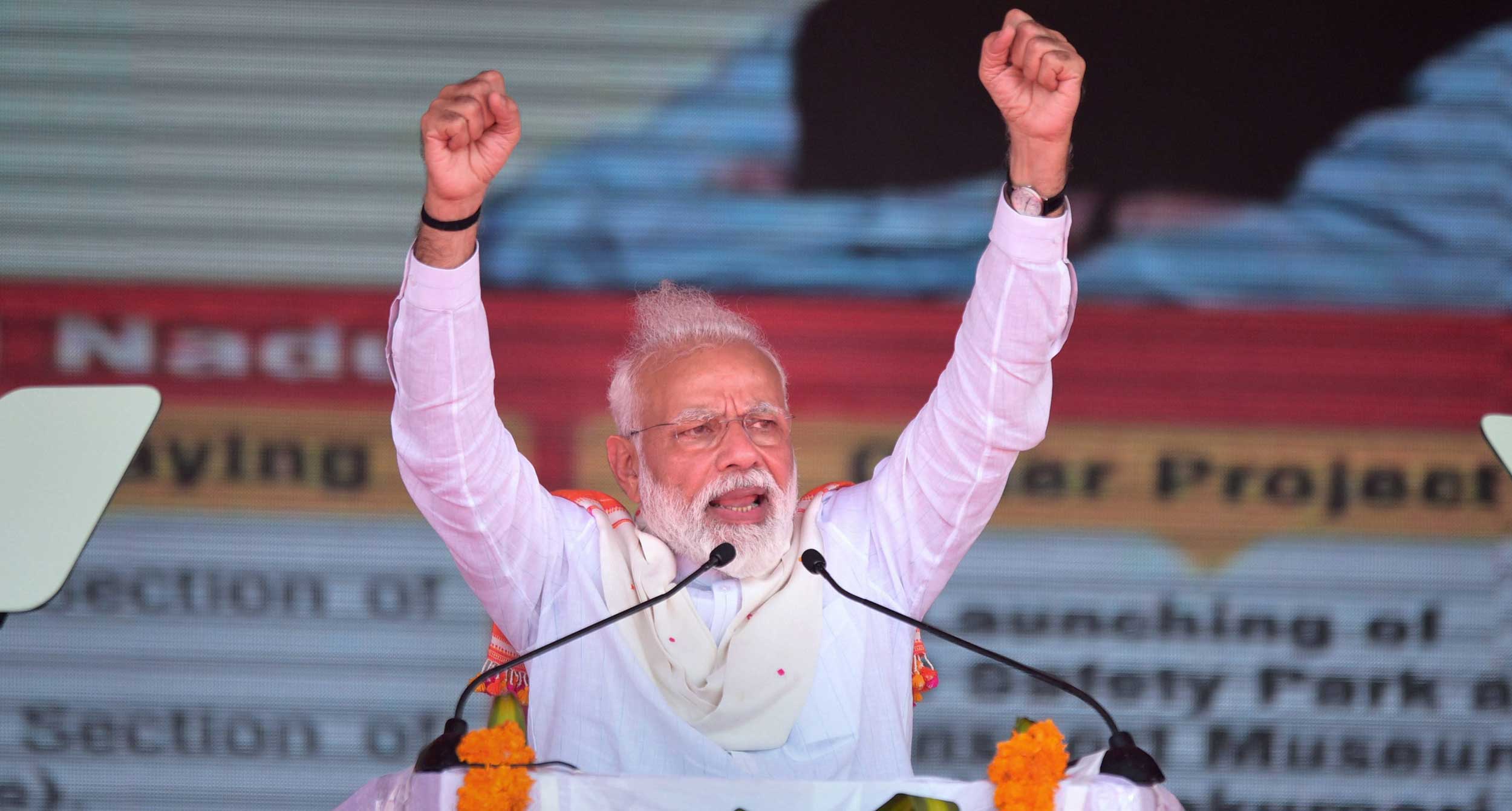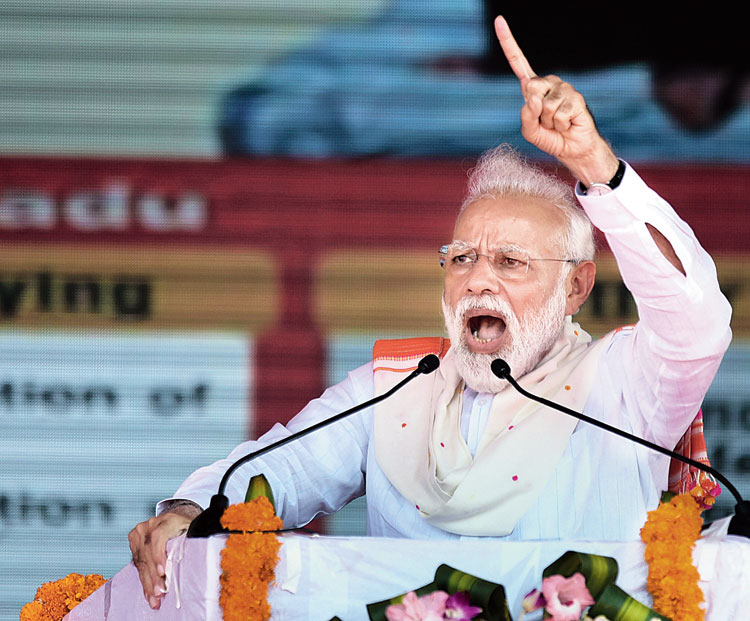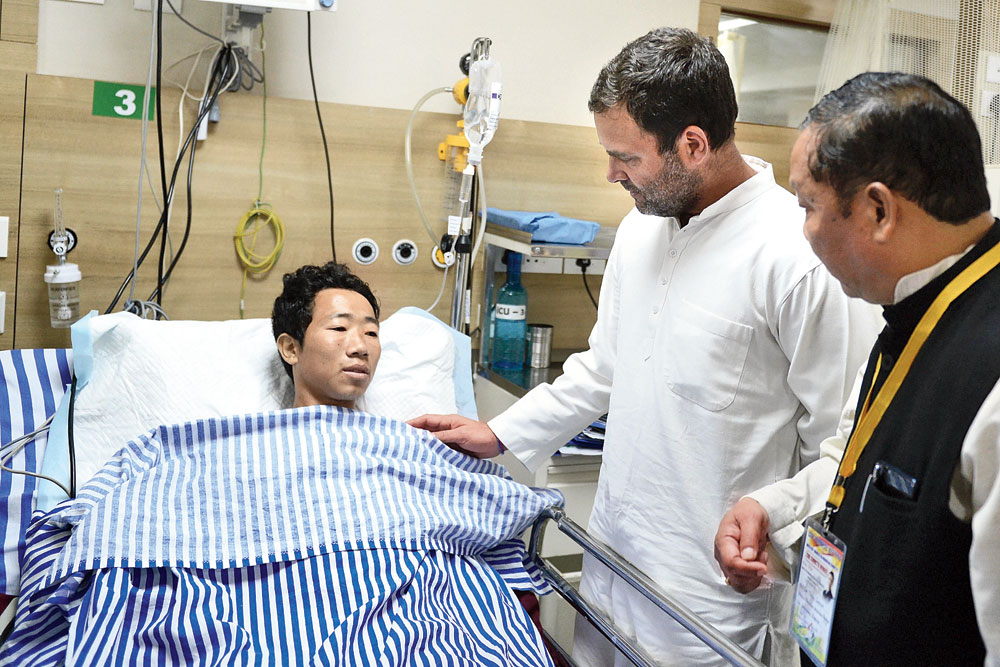Unity is a cherished principle in a diverse polity. The prime minister’s exhortation to party workers to “live, work, grow, fight and win as one” has thus been welcomed as an attempt to unite the nation in an hour of crisis. However, Narendra Modi’s understanding of oneness is not quite original; but it is certainly worrying. A day after the prime minister addressed booth workers of the Bharatiya Janata Party, Mr Modi is reported to have made another speech, this time in Kanyakumari, in which he purportedly stated that some political parties — presumably the members of the Opposition — had begun to hate India as they were driven by their hate for the prime minister. Sensational claims need not be substantial. But it is difficult to ignore Mr Modi’s subtle, unedifying attempt to equate himself with the nation. Of course, such reasoning is not novel. The phenomenon of the Great Leader has been associated with totalitarian societies that are willing to suspend reason to find an entire nation embodied in one individual. Indeed, swayed by the wave of national socialism, Germany had sanctified the doctrine of führerprinzip — the leadership principle — that vehemently argued in favour of anti-parliamentarianism. A former prime minister, she belonged to the Congress, had been feted in a similar manner after leading India to triumph in a war. Perhaps Mr Modi endorses — craves — such uncritical devotion. Is it possible that fidelity to the idea of ‘one people, one empire [nation], one leader’ — the slogan that rang through Germany then — serves as the foundation of the template of unity preferred by Mr Modi?
Unfortunately, the personality cult does not rest easy on a democratic, pluralist set-up. In its purest form, democracy is the rule by, not one man but, the people. In India, ‘the people’ signify the proverbial melting pot of identities, faith and thoughts. The unity that the prime minister and his party seek to achieve is alleged to be inimical to this spirit of pluralism embedded in the Indian consciousness. This is because Mr Modi’s notion of solidarity — oneness — can only be achieved by the negation of the concepts of assimilation and diversity. Little wonder then that New India, which Mr Modi is building assiduously, is premised on unilateralism. Is that why Great Leaders have eventually cut rather sorry figures for themselves in democracies?












